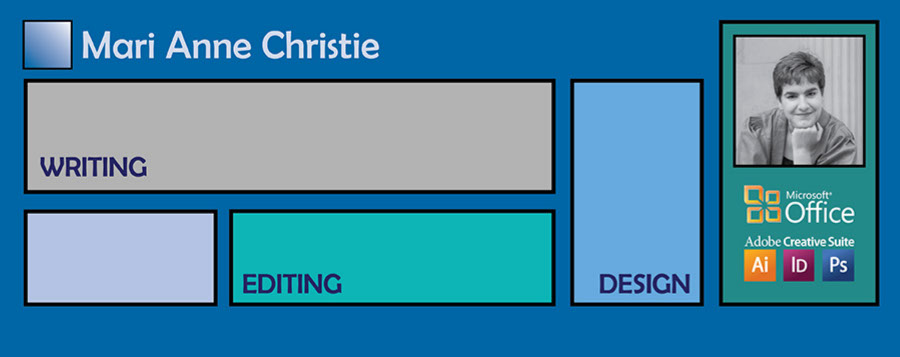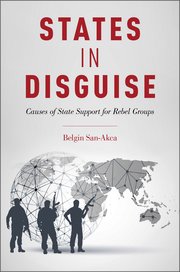
Academic Editing
Academic editing is highly specialized, no matter the topic. Whether you are writing a paper for a class, a thesis or dissertation, a journal article, or a conference presentation, you have to take into account many aspects that don't always exist in other sectors.
— Argumentation
— Evidence
— Lit Review
— Ethical Data Analysis
— Logical organization and flow
— Consistency
— Summary and paraphrasing
— Effective and engaging language
— Tone and voice
— Stylebooks or in-house stylesheets
— Formatting to specifications
— Citations and References
— Language issues specific to ESL/ELL
— And, of course, grammar, spelling, punctuation, diction, and syntax
Editing an academic paper, thesis, dissertation, or book is a specialized skill and a different process than editing a novel or technical document. It requires an eye for the conventions of the discipline, academia in general, and the tenets of good research, argument, and analysis. As such, editing has specific ramifications to academics, whether a student trying for a grade or defending to a committee, or a professor publishing in journals or with a university press. Further, the higher the level of education, the more skill a scholar or researcher is expected to apply in their writing, whether or not English is their discipline (or, indeed, their first language).
Before starting the editorial process, it is important to identify the state and stage of the of the document and clarify your editorial requirements. If you are preparing your manuscript for submission, global suggestions about argument and cohesion are probably unwelcome. Conversely, if you are concerned about larger issues of logic or the weight of your research, an editor reviewing citations and format will frustrate you.
Editing is an iterative, communicative process, especially when a lot is riding on your work—grades, degrees, tenure—and final approval of every change is always the responsibility of the author. It is imperative for the writer to be aware that no editor can (or should) "fix everything," nor is it appropriate to address all problems in one round of review. No editor should ever guarantee 100% accuracy; most reputable contractors will provide 98% accuracy at proofreading stage.
It is suggested that academics utilize peers in their field for substantive review and/or editing at the first—possibly second—stage of the editorial process. This allows a review of content by others with similar knowledge. However, it should be noted that most editors can identify a weak argument, no matter what the topic. Proofreading for submission should be done by a different professional with specialized knowledge of the English language, but not necessarily a specific discipline, especially for ESL/ELL students.
Substantive editing
SUBSTANTIVE EDITING WILL NOT BE UNDERTAKEN FOR CURRENT STUDENTS WITHOUT WRITTEN PERMISSION FROM THEIR PROFESSOR OR COMMITTEE.
— Global suggestions for strengthening argument, concision, audience analysis, citation use, readability, etc.
— Section-, paragraph-, and sentence-level suggestions for improvement
— Questions of continuity, consistency, and coherence
— Identification of grammatical patterns of error, but not necessarily word-level correction.
— This is not the stage to be concerned with perfect grammatical accuracy, as larger changes will require additional review.
Line or copy editing
— Sentence and word-level corrections of grammatical and spelling errors
— Identification of egregious errors of continuity, argument, consistency, and coherence
— 80-90% grammatical accuracy is expected.
Proofreading
— Just prior to manuscript formatting for submission or publication.
— Word- and character-level grammatical and spelling, based on either standard conventions or any given style book.
— Review of word/page count requirements
— No identification of errors in continuity, consistency, and coherence
— The least iterative stage, as at this point, the editor's role is objective, not subjective.
— 95-98% accuracy is expected. (No professional editor should guarantee 100% accuracy.)
— Not suggested until you are ready for submission, as changes require additional review.
Citation format review
— Review of in-text and reference page citations, according to your chosen style book.
— This service does not include checking the validity or accuracy of sources.
Plagiarism Check
— Online check for improper use of original sources.
— Manual review of flagged items for correct citation.
— Suggestions for revision to identified plagiarized areas.
Ancillary Writing/Review
— Abstracts
— Keywords
— Outlines
— Query letters
— Academic biographies
— Academic CVs and resumes
Formatting and Graphics
Academic Microsoft Word Formatting
— Microsoft Word file for journal or publisher submission
— PDF file
— This service assumes provision of specific formatting requirements.

States in Disguise:
Causes of State Support for Rebel Groups
by Belgin San-Akca
Assistant Professor,
Dept. of International Relations,
Koç University, Istanbul
Published by:
Oxford University Press,
2016
The first book-length study of external support in internal conflict Identifies and explains the domestic and international factors that trigger external state
support for rebel groups.
TESTIMONIALS
"Mari's turnaround was amazing: I had my 5000-word article back within the day, and her editing was thorough and incisive. Her suggestions vastly improved the final product, helping slim it down in word count and bring out the argument more clearly. I would absolutely recommend Ms Christie's editing services to any academic seeking honest feedback and intelligent improvements."
Dr. Jacqueline Reiter, historian and author of
"Mari has been great to work with, and without her tireless help and patience I would not have had nearly as many publications on my academic CV. She is a true professional who is pleasure to work with. Her recommendations and grammar corrections have enabled me to publish a lot more (with quality) than I would otherwise would have."
Richard Miller
Associate Professor,
Kobe Gakuin University
All Content © Mari Anne Christie
